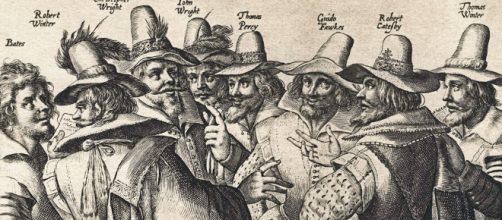The gunpowder plot to blow up the Parliament Building in the British Isles led to Guy Fawkes Day. The devious plan was foiled before it was carried out and is the reason behind the celebration. The day is a time of merrymaking, and when people of all ages get a kick out of seeing effigies go up in flames on bonfire night.
A gunpowder stockpile
A group of disgruntled Roman Catholic activists led by Robert Catesby felt mistreated by the Protestant government and hatched a plot to blow up the Parliament building during a meeting attended by King James I of England and his cabinet on November 5th, 1607.
Guy Fawkes, along with other conspirators, stockpiled gunpowder in a room below the meeting place and many lives would have been lost had the discovery not been made. The perpetrator who was caught red-handed in the building was tried and executed along with his other cohorts.
November 5th
The gunpowder plot fascinated the residents of Great Britain who were overjoyed that disaster was averted. To celebrate, they started bonfire celebrations which led King James I to declare November 5th a day of public thanksgiving and a public holiday. It is a celebration of victory over a potentially devastating plot.
Traditions and customs
Today, Guy Fawkes Day continues to be celebrated throughout Great Britain. Celebrations include the parading and burning of effigies, bonfires, fireworks, as well as the cooking of large potatoes on bonfires.
What could have been a solemn remembrance has become a celebration of a disaster averted. When a new session of Parliament is opened today, there is a customary search of the basement carried out by the Yeomen of the Guard. The search has been carried out since 1928. Effigies of 'Guy' are used to raise money for fireworks. In the days leading up to November 5th, children would carry their "Guys" through the streets or set them up at corners with a sign asking for "a penny for the guy."
Bonfires at night
Weeks before Bonfire night, children collect wood and other materials for burning. These are used to light large community bonfires. Sussex is famous for its torchlight processions by a number of bonfire societies who burn not only effigies of the guy but of popular personalities as well. Guy Fawkes Day customs can vary from one town, country or city to the next. Bonfires, fireworks, effigies and everything combustible is at the heart of the Guy Fawkes traditions.


